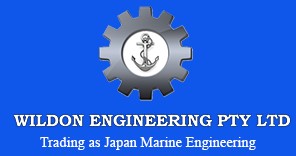Stern Tube Bearing Failures: What are the Possible Causes?
Blog | November 4th, 2019A stern tube bearing failure is never viewed as a trivial issue. Apart from anything else, that seal is a route to the interior of a boat’s hull. If seal integrity goes, the inevitable loss of hull fidelity will likely adversely affect the rest of the boat. Keep that thought in mind as you learn all about the causative factors that can undermine tube bearing functionality.
Propulsion System Shortcomings
Regaled by poets for centuries, sea and lake waters are capable of massive energy outputs. Even tidal forces can cause propeller and rudder wear. The influx and outflow may seem gentle enough, but it pushes and pulls the water-exposed engine components. Moving into choppier seas, the fluid energies are felt keenly by boat shafts as a thrust loading effect, which is transferred to the stern tube bearings. Stressed by misaligned propellers and rudders, by water-powered thrust energies and perpetually active tidal forces, stern tube bearings will eventually age and fail.
Low Hull Immersion Conditions
Here’s a problem that was once relatively rare, but it’s now on the rise. If a heavily-laden boat suddenly lost ballast or its load were to be emptied, then it rises slightly. Boat owners can check hull markings to see how their craft rises above its design waterline. Now, this wasn’t much of a problem years ago. Today, however, more and more ships are being fitted with fixed-pitch, low immersion propulsion systems. If a boat rises high in the water, or perhaps the tide goes out, then hydrodynamic lubrication systems can no longer drink in a cooling film of water.
Troubleshooting Oil Lubrication Failures
That last boat was an eco-friendly craft. It pumps in outside water to create a hydrodynamic film around a boat’s shaft. It’s an elegant solution to a very old problem, but it obviously can’t work properly if the ship isn’t sitting low enough. Elsewhere, what about a conventional oil seal? They’re becoming less popular because oil lubricants are environmentally hazardous substances. However, many vessels still employ older engines. If an oil filter clogs, the lubrication flow cannot be sustained. Moreover, if the filter isn’t performing optimally, well, contaminants will enter the slick shaft film and cause big problems.
To maintain adequate hydrodynamic power, stern tube bearings require water. The pump has to operate, the inlet filter must be clean, and low-immersion hull conditions cannot be endured. Oil pumps and filters must also be properly maintained, of course. Such maintenance actions are even more important here, for you don’t want that black fluid to enter the oceans or lakes around you. Generally speaking, since even the tides and choppy waters can act as an axial thrust load, externally mounted propulsion components occasionally require alignment checks, too.
Optimized by NetwizardSEO.com.au
Recent Posts
- Yanmar Parts Online Australia – Genuine Yanmar Spare Parts at Competitive Trade Prices
- Turbochargers Supply from Japan Marine: Wildon Engineering’s Excellence in Global Shipping
- Mitsubishi VOS Ballast Water Treatment System: Next-Generation Marine Environmental Solutions
- Yanmar Marine Compressors: Reliable Power Systems for Commercial Vessels
- Water-Lubricated Stern Tube Bearings Explained: How EVR Technology Supports Marine Propulsion
- YANMAR Auxiliary Generator Engine Parts for Commercial Vessels
- Fluid Control Systems: Innovations in Marine Applications
- Yanmar Diesel Generators Australian Distributor: Power for Shipping & Marine Operations
- Navigation & Communication Equipment: Essential Tools for Safe Voyages
- Stern Tube Seals: Preventing Leaks & Maintaining Vessel Integrity
